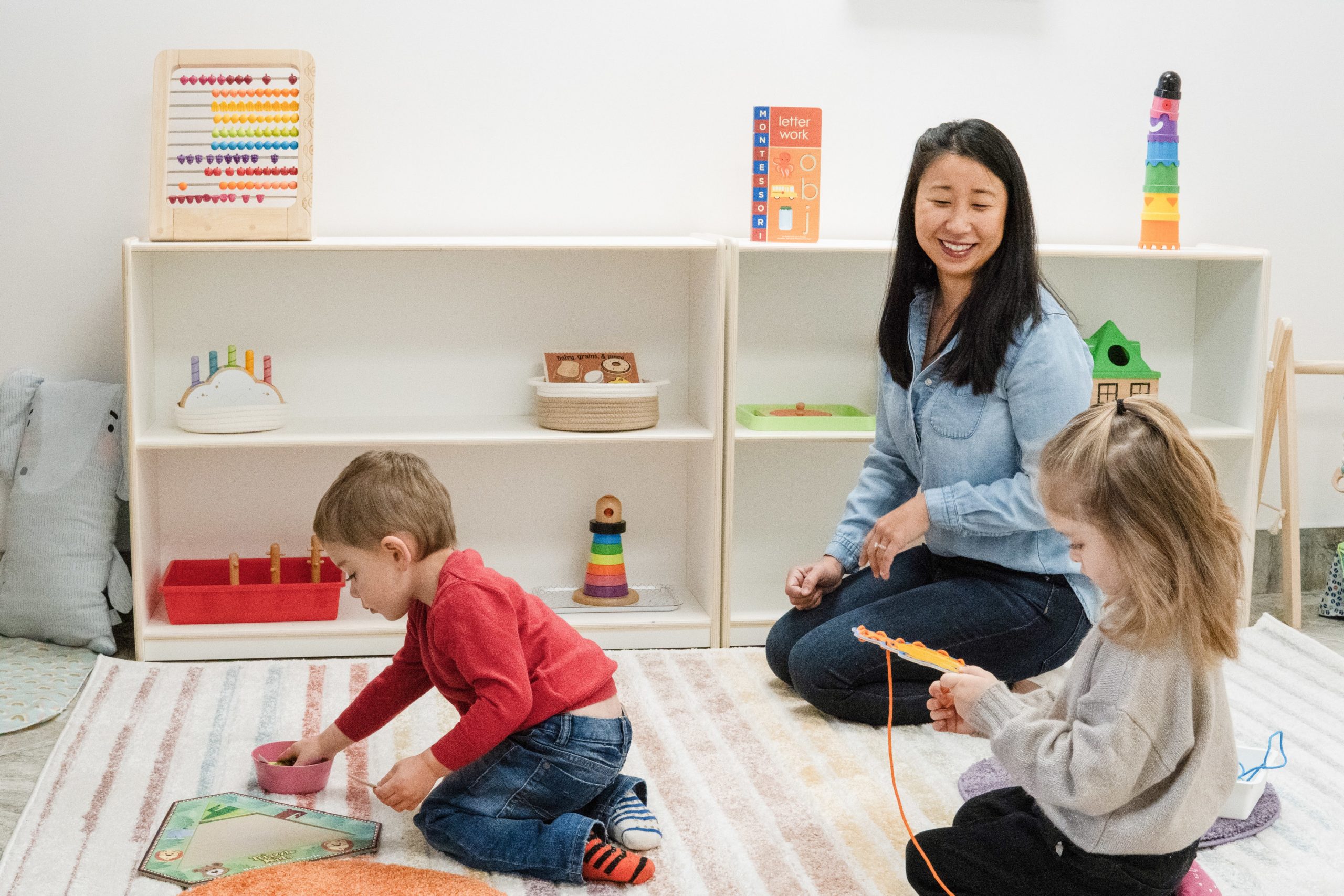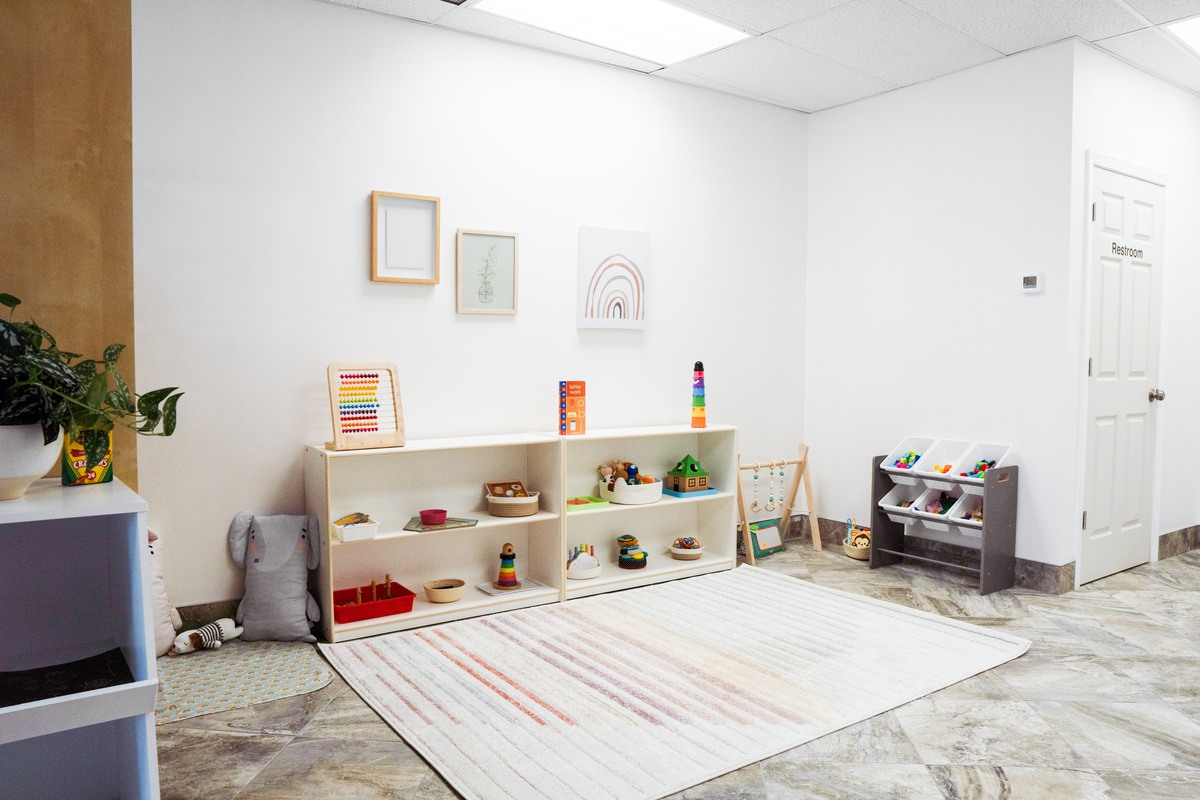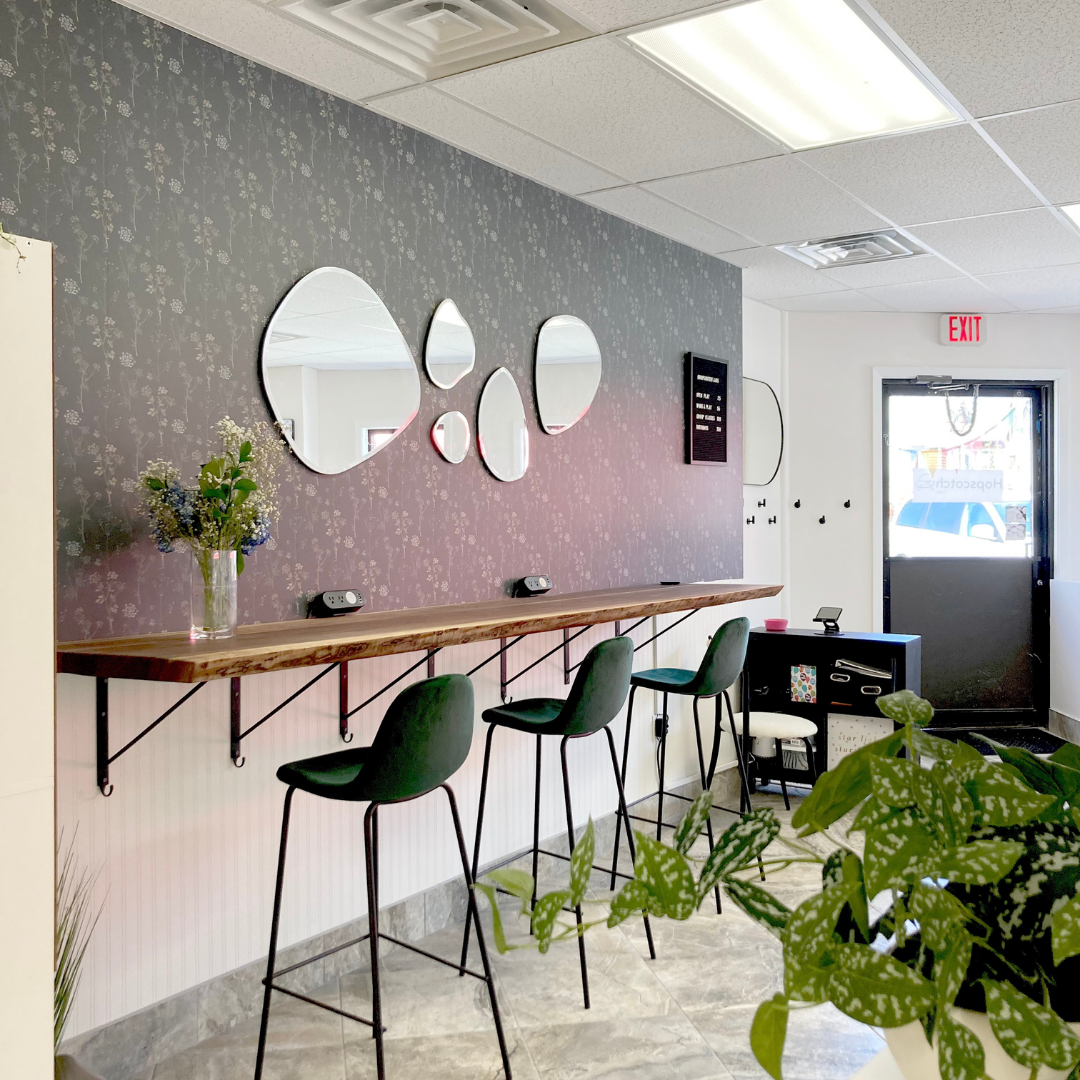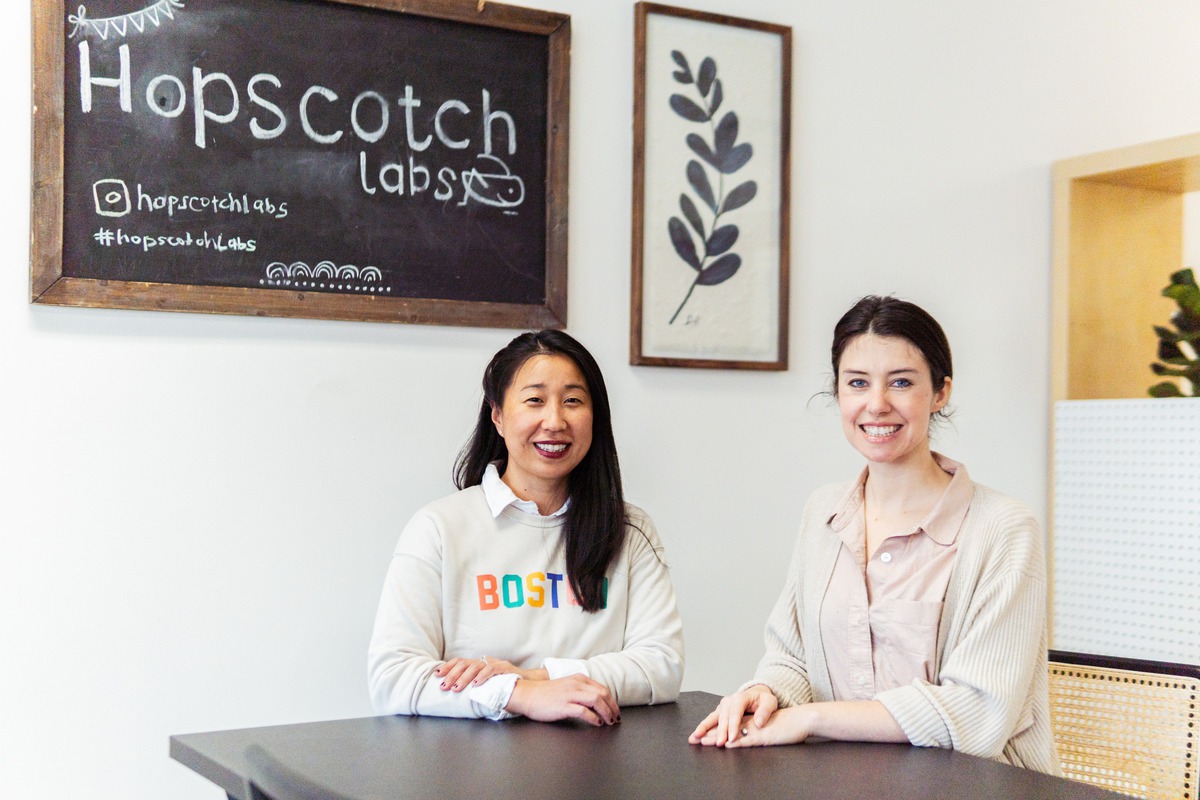In the Late Night Hours of a Boston Triple-Decker
Light glows faintly into the late night streets of Jamaica Plain from the second floor of a housing triple decker. Beyond the window pane sits Anna Raborn, seated at her kitchen table freshly returned from a long day of work at her corporate partnership position. Anna taps away at her laptop, drafting out a few emails to be sent the following morning when two sets of rapid footsteps come pattering down the hall. Her two children come rushing from their rooms to greet her after work, excited to spend some time with their mom after her time away. Already clad in their pajamas, they burst into the kitchen armed with storybooks and DVDs, waiting for Anna to choose between the two activities. Anna looks at her childrens’ happy smiles, a nauseating feeling of guilt pooling in the pit of her stomach. Despite her longing to spend time with them, the emails must be completed—and they need to be done by midnight, long after the kids’ bedtime. This is the nightly dilemma facing working mothers: children or work?
“I was constantly frustrated and honestly, I felt like I couldn’t do it. I felt like I was eventually going to have to make a decision. Even though I make more money than my husband, I was going to be the one that has to stay home” Anna said.
As she reluctantly tells her kids that she would need a raincheck on movie night and bedtime stories, Anna felt it in her gut that it didn’t need to be this way.
Beneath the Raborn’s floorboards, life bustles on the first floor of that same triple decker. Debbie Lee and her husband are going about their late night routine when a text message lights up Debbie’s phone screen. The message reads out, “The kids are asleep, come on up!” and the contact name reads, “Anna Raborn.” Debbie grabs her laptops and shoes, making her way up one floor to the Raborn’s.
“After the kids went to bed I went upstairs to Anna’s house, and in the kitchen, I’d be talking with Anna and her husband and brainstorming,” Debbie said.
These after-hour chats were the brainstorming cloud from which Hopscotch Labs would emerge: an innovative compromise for the lives of those trying to balance the precarious weights of parenting and a career. At this stage, such a coworking space was only a vision, a prototype far from reality. But with steady support and input from the local working families in their community, Anna and Debbie pushed onwards, refining their idea into the first space of its kind in Massachusetts.

Welcome to Hopscotch Labs
As described by founders Anna and Debbie, “Hopscotch is a boutique co-working community that focuses primarily on supporting working families. We are a co-working space with all the amenities that you would find in an office combined with the benefit of having an onsite Montessori-inspired play space that’s led by engaged caregivers.”
The mission of Hopscotch Labs is to enable working parents, primarily working mothers, to be able to contribute to the financial success of their families. Women are quitting the workforce in droves in order to have families, and this dividing choice between work and home life is something Anna and Debbie hope to reconcile with one another.
The Hopscotch Lab space consists of two main areas: the adult workspace and the children’s play space. The adult workspace contains flexible seating options, monitors, a quiet area for phone calls, and coffee and tea, with a full view of the children’s playspace. It is situated at the front of the space and is the first thing guests see when they arrive, giving adults the opportunity to see where they will be working and gain motivation.

Continuing on into the space will bring you to the children’s play area. Inspired by Montessori-style educational techniques, the space is set up from left to right. The furthest left accommodates ages between 12 months and 2 years, followed by shelves containing materials for two to three year olds, and graduating into manipulatives meant for three, four, and five year olds on the far right. The area also features an art space, a play kitchen, and some everyday living items. These items are there to encourage children to begin playing and exploring daily life how to’s such as unzipping your jacket, hanging that jacket up, and taking your shoes off.
The space is organized with the adults at the front and children in the back for a distinct purpose: modeling. Many children do not understand what it is that their parents are doing when they say they have to “go to work,” as Anna attested to in her own family life.
“I don’t think my own kids really understand what my work is. We can’t have kids in our space all the time. But I think that modeling how to work and what a work ethic is is a really valuable point that sometimes gets lost for families. Obviously that is a privileged point of view for those who are not working in shift jobs but sit in front of a computer all day,” Anna said.
Understanding the importance of modeling and introducing children gently to the work lives of adults is a skill that Anna and Debbie hope their visitors take home with them.
“If you come to our space and utilize our work and play options for a couple of sessions, all of a sudden you begin to think, ‘I could actually do this in my own house.’ That is the biggest win. That is the biggest compliment we could have because we’re teaching parents that you can actually accomplish your work in your own house as long as you just have a space that’s allocated to yourself and there are some things carved out for your kids,” Debbie said.
What’s In a Name?
When I inquired to learn a bit about how Anna and Debbie came to decide on the name, ‘Hopscotch Labs’ for their business, Anna smiled and insisted that it would be a discussion of boring branding trial-and-error. Yet, the name holds great significance to the founders and customers alike. Diving into the name game with the goal of emerging with a title that would be adult-oriented, fun, approachable, and gender neutral, the first question Debbie and Anna posed to themselves was, “What are some childhood games that we used to play?” Reasoning that play is indeed the work of children, emphasizing their importance to the company could be captured in the name of a common pastime: hopscotch.
Having the younger of the business’s patrons represented, the next question was how to recognize the adults who would also be utilizing the space. Anna and Debbie eventually landed on the term, ‘labs’ to compliment ‘hopscotch.’
“‘Labs’ harks back to the fact that we’re all trying to do something new together, and anybody that comes into our space is full of ideas and potential,” Anna said.
Thus, the final combined title of ‘Hopscotch Labs’ came to be.

Work and Play
Hopscotch Lab’s signature service is called, ‘Work and Play.’ It is a weekly, hour and a half drop-in session welcoming parents and children to accomplish their respective goals. A session will typically go in this way:
- Parents and children are introduced to the adult workspace.
- Parents and children are introduced to the Montessori-inspired play space.
- Adults are free to depart from their children and be in the workspace. At this point, adults are typically able to accomplish at least an hour to an hour and 15 minutes of work.
What is Montessori?
As defined in an article from Montessori Northwest, “Montessori is a method of education that is based on self-directed activity, hands-on learning and collaborative play. Children work in groups and individually to discover and explore knowledge of the world and to develop their maximum potential.” The teaching philosophy, crafted by Italian educator and physician, Maria Montessori, focuses on encouraging children to familiarize themselves with essential life skills in the freedom of a curated classroom.
Knowledge on the subject came into the Hopscotch Labs team through Debbie’s prior experience as an educator. She earned her master’s degree in education and made it a priority to broaden her experience in the field by diving into as many different school systems as she could in the K-8 age range. The final of her many teaching experiences took place in a Montessori school, where Debbie was formally trained in Montessori-style education.
“It really resonated with me because I think it’s such a beautiful philosophy. It’s truly child-centered, child-led. Everything has a manipulative and every educational concept can be worked on in a very physical, tactile way, infusing education into play,” Debbie said.
However, despite its many accolades, many families may never see Montessori’s benefits due to its high price tag. In certain circuits, the cost can be on-par with that of a university tuition. Knowing this fueled Debbie’s desire to integrate Montessori into the Hopscotch Labs experience.
“I like to utilize the knowledge I have about Montessori materials and pick things that can be purchased on Amazon or at your local toy store. We realize that our space isn’t the cheapest, either, but it is a two-on-one space so that we can give children bite-sized opportunities to get this type of educational experience under their belt,” Debbie said.
Female, Maternal, and AAPI Founders Raising Their Voices
Between the two, Anna and Debbie represent mothers, females, and Asian American and Pacific Islanders who have forged a way for themselves in the world of entrepreneurship. For Debbie, representing the Asian American community in her daily work is a responsibility that is not lost on her.
“I do feel quite honored to be part of the population of female founders that happen to be AAPI. Being able to represent other AAPI women is a big deal. I would like to do a better job if not for myself, then for other women who are going to be coming down the pathway. I’ve only been able to get here because of the many powerful women who have brought me up to where I am today. It only feels right for me to try really hard so that we can continue to stay here, we can continue to be visible, and we can continue to help our brothers and sisters who look like us and who want to be here,” Debbie said.
With such a platform and perspective as Hopscotch Labs has, Anna has put an emphasis on making the business’s stances on certain issues clear to the public. In the age of electronic communication, something as simple as a Tweet or post on a company’s Facebook can act as a written record of who that company is at its ideological core. To some, this might be a nerve-wracking capability that they would rather leave unutilized. But for Hopscotch Labs, it is considered an open and honest representation of their stances on issues.
Anna has been outspoken regarding the childcare system crisis currently occurring in the United States, a crisis that many may not even recognize. Drawing a comparison to the housing crisis, there are simply not enough spots to fit all of the different families that need one of those spots.
“From an economic standpoint, caregivers are leaving the workplace in mass numbers and from a cultural standpoint, we are not treating working families well. People who work in early education, caregivers, nannies, babysitters, and daycare workers are paid minimum wage or even below in some cases. We saw a statistic that in Massachusetts, the average childcare worker makes $12 an hour, which is actually under the Massachusetts minimum wage. We want to generate a company culture that is healthy for childcare workers–gives them the breaks that they need and the paycheck that they need to live well,” Anna said.
To solve this societal issue, Anna believes that the answer must be a creative one partnered with more energy poured into the childcare industry. Innovative solutions will be more important than ever as the young population of the United States continues to grow in numbers.
Debbie voiced her support of this, highlighting, in particular, the current societal viewpoint on childcare workers.
“From the ages of zero to five, you’re caring for children in such a way that requires so much patience and so many skills. Yet, we’re a society that’s not willing to respect that or pay for that. So for us, it is very important to make sure that our staff members are valued and that they feel that they too can be respected in the workforce,” Debbie said.
Memos From the Founders to the Future of Hopscotch Labs…
“One of the biggest challenges I think we’ve seen is that there’s such a wide variety of ages. We have so many requests, with children more in the infant age range requesting to come into the space. We do our best to accommodate one or two, depending on how our staff feels and what our capacity looks like for the day. But sometimes we do have to turn away some folks that don’t necessarily fit the appropriate age range and that is unfortunate. We are very hopeful that as we expand and grow, we’ll have a space carved out for each age range. This concept resonates with so many different families, even with older kids. We’ve had requests for kids between the ages of 7 to 10, and we’re not set up for that right now. But again, as we grow, we’re really hoping to be able to accommodate that type of programming so that we can expand our services,” Debbie said.
“We’re passionate about really caring for the entrepreneurs that come into our space and we care deeply about where the childcare industry is going. We care about the sort of benefits that larger corporations are giving working parents and we are starting to have conversations about how we can be impactful in that policy conversation. Our goals are to keep our co-working space open as a resource, focus on entrepreneurs, and focus on advocacy,” Anna said.
…and to Parents
“You know your family best, and sometimes the best thing for your family is for you to quit your job and be at home with them. Sometimes it is for you to keep working so that you have more money to live. But parenting is a long game. The things you do right now are important, but they’re not the end-all-be-all. What you’re doing right now is just sewing seeds for how your children are going to turn out and how your life is going to turn out,” Anna said.
“Do your best to minimize risk so that you can feel comfortable. Everyone’s risk level comfort is going to be different, whether it’s running a business or making decisions for your family. Whatever you do in life, minimize risk to the best of your ability so you can have a good life,” Debbie said.
Connect with Anna, Debbie, and Hopscotch Labs
www.hopscotch-labs.com
hello@hopscotch-labs.com
